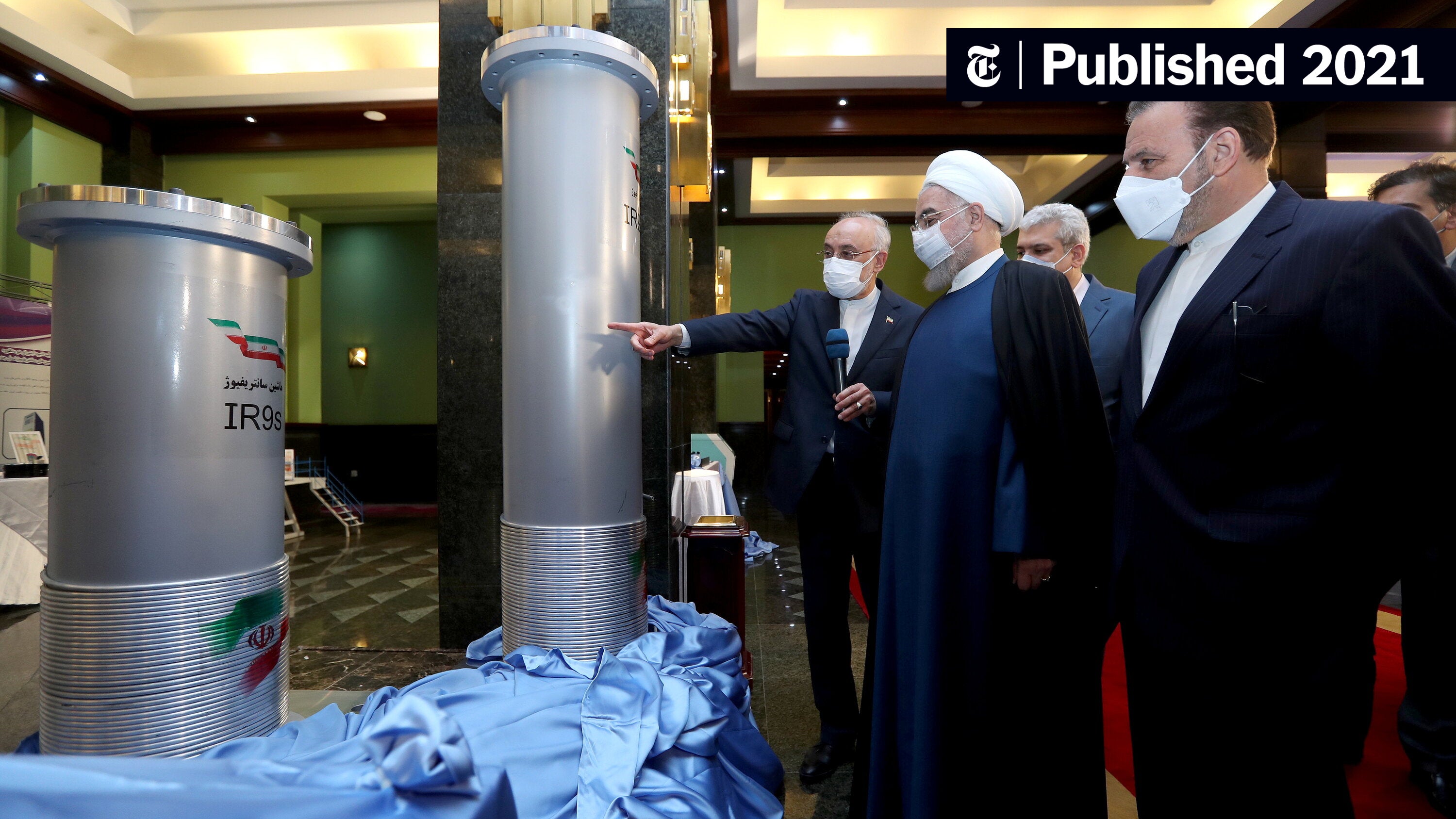U.S. And Iran Fail To Reach Agreement In Latest Nuclear Talks

Table of Contents
Key Obstacles in the Iran Nuclear Talks
The failure of the latest Iran nuclear talks stems from several deeply entrenched disagreements. The inability to bridge these divides highlights the significant obstacles to achieving a comprehensive and verifiable agreement.
Sanctions Relief
The major point of contention revolves around the extent of sanctions relief Iran demands in exchange for limiting its nuclear program. This is a critical component of any agreement, as Iran views sanctions as a major impediment to its economic development.
- Iran insists on the complete removal of all sanctions imposed by the U.S. and its allies, arguing that only a comprehensive lifting of sanctions can create the necessary environment for cooperation.
- The U.S. is hesitant to offer complete relief, citing concerns about Iran's compliance with the agreement and its continued involvement in regional conflicts and support for proxy groups. The U.S. wants assurances that sanctions relief will not be misused.
- The disagreement over the scope and verification of sanctions relief remains a significant hurdle. Iran needs guarantees that the sanctions relief will be lasting and verifiable, while the U.S. seeks mechanisms to ensure that Iran doesn't violate the terms of any agreement. This includes robust monitoring and verification mechanisms to ensure that sanctions relief is not diverted to fund illicit activities.
Nuclear Enrichment Limits
Differences persist regarding the level of uranium enrichment Iran will be allowed to conduct. This is a crucial aspect because uranium enrichment can be used to produce both nuclear fuel for power plants and the fissile material for nuclear weapons.
- Iran argues its enrichment activities are for peaceful purposes, necessary for its civilian nuclear energy program. They insist that their enrichment levels are within acceptable limits for peaceful purposes.
- The U.S. and its allies remain skeptical, citing concerns about Iran's capacity to quickly produce weapons-grade uranium if it chooses to do so. Past actions and lack of transparency fuel these concerns.
- Discussions over the monitoring and verification of enrichment levels continue to be a major point of contention. The international community wants stringent monitoring and verification mechanisms to ensure that Iran does not secretly divert materials towards weapons development.
International Atomic Energy Agency (IAEA) Investigations
Outstanding IAEA investigations into Iran's past nuclear activities also pose a significant challenge. Addressing these past issues is crucial for building trust and ensuring future transparency.
- Iran has refused to fully cooperate with the IAEA's investigation, citing concerns about the impartiality and fairness of the investigation process. This lack of full cooperation hampers confidence building.
- The U.S. insists on addressing these outstanding concerns before offering further concessions. They argue that resolving the IAEA's outstanding questions is fundamental to building trust and ensuring future compliance.
- The unresolved IAEA investigations cast a shadow over trust between the parties. Until these concerns are addressed, the U.S. and its allies will be hesitant to offer substantial sanctions relief or concessions on enrichment levels.
Potential Consequences of the Failed Talks
The failure to reach an agreement in the Iran nuclear talks carries significant risks with potentially far-reaching consequences for regional and global security.
Regional Instability
The failure to reach an agreement could further destabilize the Middle East, increasing the risk of regional conflict and escalating existing tensions.
- Increased tensions with Iran’s neighbours: The lack of progress on the nuclear issue could embolden Iran to pursue more assertive policies in the region, increasing the likelihood of conflict with its neighbors.
- Potential for renewed escalation of regional proxy wars: The ongoing conflicts in several countries in the region could intensify, with Iran and its rivals potentially increasing their support for proxy forces.
- Uncertainty in global oil markets: Any escalation in the region could disrupt oil supplies, causing volatility in global energy markets.
Nuclear Proliferation
The breakdown in talks could embolden Iran to continue its nuclear program, potentially leading to the development of nuclear weapons, posing a grave threat to regional and international security.
- Risk of a nuclear arms race in the region: If Iran develops nuclear weapons, other countries in the region might feel compelled to develop their own nuclear arsenals, leading to a dangerous arms race.
- Increased concerns about international security: A nuclear-armed Iran would significantly alter the geopolitical landscape, posing a major threat to international security.
- Potential for further sanctions and isolation of Iran: The failure of the negotiations could lead to even stricter sanctions and greater international isolation for Iran.
Impact on Global Diplomacy
The failure of the Iran nuclear talks highlights the challenges of multilateral diplomacy and the difficulties in reaching consensus on complex international issues.
- Erosion of trust in international institutions: The breakdown could further erode confidence in international institutions' ability to resolve major global challenges.
- Potential for increased unilateralism by major powers: The failure might encourage major powers to pursue unilateral action rather than multilateral diplomacy.
- Impact on other international negotiations: The lack of progress in the Iran nuclear talks could have a chilling effect on other international negotiations, making it more difficult to achieve cooperation on pressing global issues.
Conclusion
The failure of the latest Iran nuclear talks represents a significant setback for international efforts to prevent nuclear proliferation and maintain regional stability. The persistent disagreements over sanctions relief, enrichment limits, and IAEA investigations underscore the deep-seated mistrust and complex challenges involved in reaching a comprehensive agreement on the Iran nuclear deal. The consequences of this impasse could be far-reaching, potentially leading to increased regional instability, nuclear proliferation, and a further erosion of trust in international diplomacy. The international community must continue to pursue diplomatic solutions, but the path to a successful outcome remains fraught with challenges. To stay updated on the developments in the Iran nuclear talks, continue to follow reputable news sources and expert analysis. Further engagement with the Iran nuclear talks remains crucial for global security.

Featured Posts
-
 Anchor Brewing Company To Shutter A Legacy Concludes After 127 Years
Apr 28, 2025
Anchor Brewing Company To Shutter A Legacy Concludes After 127 Years
Apr 28, 2025 -
 2000 Yankees Diary Bombers Defeat Royals In Thrilling Victory
Apr 28, 2025
2000 Yankees Diary Bombers Defeat Royals In Thrilling Victory
Apr 28, 2025 -
 Bubba Wallace Vs The Nascar Status Quo His Honest Take
Apr 28, 2025
Bubba Wallace Vs The Nascar Status Quo His Honest Take
Apr 28, 2025 -
 Uae Holiday 10 Gb Sim 15 Off Abu Dhabi With The New Pass
Apr 28, 2025
Uae Holiday 10 Gb Sim 15 Off Abu Dhabi With The New Pass
Apr 28, 2025 -
 Mike Breen On Marv Albert A Legend Among Basketball Announcers
Apr 28, 2025
Mike Breen On Marv Albert A Legend Among Basketball Announcers
Apr 28, 2025
